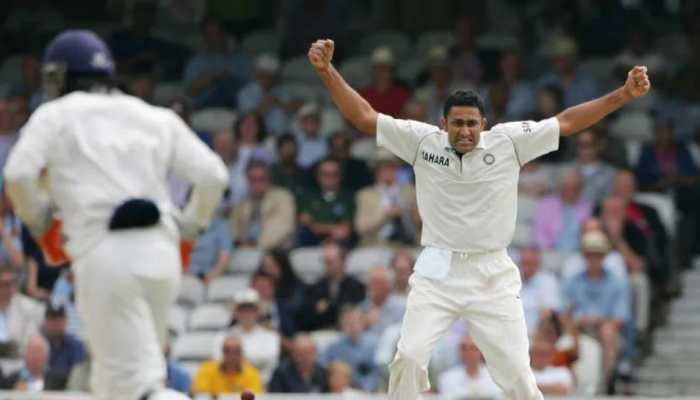Supreme Court's verdict on validity of electoral bonds on April 12
The Centre asked the court not to interfere with it at this stage and examine whether it has worked or not only after the elections.
Trending Photos
)
New Delhi: A day after the first phase of national election concluded, the Supreme Court is set to deliver its verdict on plea challenging the government's electoral bond scheme for political funding. The plea, filed by an NGO, Association for Democratic Reforms (ADR), has sought that either the issuance of electoral bonds be stayed or the names of donors be made public to ensure transparency in the poll process.
On Thursday, the apex court said that if the identity of the purchasers of electoral bonds meant for transparent political funding is not known, then the efforts of the government to curtail black money in elections would be "futile."
Meanwhile, the Centre asked the court not to interfere with it at this stage and examine whether it has worked or not only after the elections.
The NDA government announced the electoral bond scheme during the 2017 Budget, in a bid to wipe out black money. The aim was to make transparency in political funding as under the new scheme the name of the donor is known only to banks.
"So far as the electoral bond scheme is concerned, it is the matter of policy decision of the government and no government can be faulted for taking policy decision," it told the bench comprising Chief Justice Ranjan Gogoi and Justices Deepak Gupta and Sanjiv Khanna.
During Thursday's hearing when the bench asked Attorney General K K Venugopal, representing the government, as to whether bank knows the identity of purchasers at the time of issuing the electoral bonds, he said that the banks issue bonds after ascertaining KYC which is applicable for opening the bank accounts.
"When the bank issues the electoral bond, does the bank have details on which bond was issued to 'X' and which bond was issued to 'Y'," the bench asked.
On getting the response in negative, the bench said, "If the identity of purchasers of bonds is not known then there will be greater ramification on the Income Tax law and all your (government's) efforts to curtail black money will be futile".
Venugopal said bonds are purchased through proper banking channels by using white money and through cheques, demand drafts and electronic means and no third party cheques are allowed to procure bonds.
The bench then asked about donations by shell companies and said that if the identity of donors are not known then such firms would "turn black to white" and moreover, the KYC is only the certification of the source of money.
Venugopal said the bank knows the customer, but it does not know which bond was issued to which party.
"It is not voters' concern to know where the money comes from. Transparency cannot be looked as a 'mantra'. What is the realities of the country. This is a scheme that will eliminate black money from the elections," he said.
He also said that the donors also have the right to privacy and the apex court verdict recognises the right to have political affiliations and urged the court to uphold the scheme.
Lawyer Prashant Bhushan, appearing for ADR, said that the scheme has nothing to do with the effort to curb black money and it opens the banking means also to donate by remaining anonymous.
The Centre and the Election Commission had taken contrary stands in the Supreme Court on Wednesday over political funding with the government wanting to maintain anonymity of the donors of electoral bonds and the poll panel batting for revealing the names of donors for transparency.
The EC, represented by senior lawyer Rakesh Dwivedi, had opposed Centre's submissions and said secrecy allowed in the electoral bonds scheme "legalises anonymity".
In its affidavit, the Centre had said the electoral bonds "attempt at bringing greater transparency, ensuring KYC compliance and keeping an audit trail in comparison to the earlier opaque system of cash donations.
On April 7, Finance Minister Arun Jaitley tweeted, "Electoral Bonds are all tax paid and declared money. Parties declare how many bonds they got. The Donors declare the bonds they bought- all white money and better transparency. Many well-meaning persons have a problem for every solution- no better solution."
Electoral Bonds are all Tax paid and declared money. Parties declare how many bonds they got. The Donors declare the bonds they bought – all white money and better transparency. However, many well-meaning persons have a problem for every solution – No better solution. — Chowkidar Arun Jaitley (@arunjaitley) April 7, 2019
Last year in February, the apex court had sought the Centre's response on a plea moved by the CPI(M), which had termed the issuance of electoral bonds by the government as "arbitrary" and "discriminatory."
Stay informed on all the latest news, real-time breaking news updates, and follow all the important headlines in india news and world News on Zee News.
Live Tv







)
)
)
)
)
)
)
)
)
)
